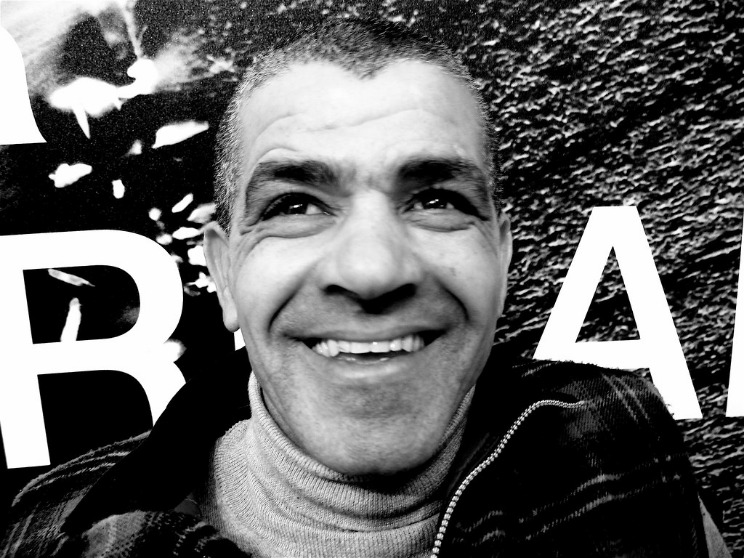Historical Background of Black Communities in Algeria
The presence of Black communities in Algeria has a complex and diverse historical background rooted in the region’s rich history of migration, trade, and cultural exchanges. Throughout centuries, various groups, including sub-Saharan Africans, migrated to and interacted with local populations, shaping the social and demographic fabric of the country. These communities have experienced periods of both integration and marginalization, influenced by colonialism, slavery, and contemporary socio-political developments. Understanding this historical background provides essential context for exploring the experiences and contributions of Black people in Algeria today.
Pre-Colonial Era and Indigenous Populations
The presence of Black communities in Algeria has deep historical roots that extend back to pre-colonial times, reflecting a complex tapestry of indigenous populations and external influences. Prior to French colonization, the region was inhabited by diverse ethnic groups, including those with African origins, who contributed to the socio-cultural landscape of the area. The indigenous populations in the coastal regions and inland savannas included groups that maintained distinct cultural identities and social structures. These communities often engaged in trade, migration, and intermarriage with other local populations, fostering a rich diversity. Historical records suggest that Sub-Saharan Africans, including warriors, traders, and laborers, have been present in the area since antiquity, influencing local customs and practices. The arrival of various peoples over centuries, including those from North and sub-Saharan Africa, shaped a multicultural identity that persisted through the pre-colonial era, laying the foundation for the presence and recognition of Black communities within Algeria. This heritage is integral to understanding the multifaceted history of racial and cultural diversity in the country before European domination and colonization altered the demographic landscape.”
Impact of Arab and Berber Dynasties
The historical background of Black communities in Algeria is deeply intertwined with the diverse cultural and political developments that have shaped the region over centuries. These communities, particularly those of sub-Saharan origin, have contributed significantly to the social and economic fabric of Algeria, especially in regions like the Sahara and southern territories. Throughout history, Black populations have faced various degrees of integration, marginalization, and recognition, influenced by changing political dynamics and societal attitudes.
The impact of Arab and Berber dynasties on these communities is notable in both cultural and linguistic spheres. Arab dynasties, such as the Umayyads and Abbasids, helped spread Islam and Arab culture across North Africa, including Algeria, influencing local customs and languages. The Berber dynasties, such as the Almoravids and Almohads, played a crucial role in shaping the region’s identity, fostering a blend of Arab, Berber, and indigenous traditions. These dynasties promoted the Arabization of many areas, which affected the interactions between Black communities and the dominant cultural groups. Despite these influences, Black communities often maintained distinct identities and cultural practices, which continue to be an essential component of Algeria’s diverse heritage.
Colonial Period and Migration Patterns
The presence and history of Black communities in Algeria are deeply intertwined with the country’s colonial past and migration patterns. During French rule from 1830 to 1962, Algeria experienced significant movements of Black populations, including enslaved Africans,atoiled workers, and migrants from neighboring regions. These communities often worked in agriculture, domestic service, or as laborers in urban centers, and their existence was shaped by the colonial economy and social structures. Migration trends were influenced by various factors such as the Atlantic slave trade, decolonization, and regional conflicts, which led to the movement of Black populations both within Algeria and to other parts of Africa and France. Post-independence, these communities have sought to assert their identity and preserve their cultural heritage amid shifting socio-political landscapes. Overall, the historical background of Black communities in Algeria reflects a complex narrative of resilience, migration, and adaptation in the face of colonial oppression and changing national dynamics.
Demographic and Cultural Profiles
Understanding the demographic and cultural profiles of Algeria’s Black communities provides valuable insight into the diverse social fabric of the country. These groups contribute uniquely to Algeria’s rich heritage, bringing distinct customs, traditions, and histories that shape the nation’s identity. Exploring their demographics and cultural expressions reveals the importance of inclusivity and acknowledgment of all communities within Algerian society.
Population Distribution Across Regions
Algeria’s population is predominantly composed of Arab-Berber ethnic groups, with a minority of Black Africans residing mainly in the southern regions. The demographic profile of Black people in Algeria is characterized by a diverse mix of communities, many of whom migrated from neighboring Sub-Saharan countries or are descendants of historical trade and migration networks. Culturally, Black communities in Algeria maintain unique traditions, languages, and religious practices, often blending their indigenous customs with local Algerian influences.
Population distribution across regions shows a concentration of Black populations in the southern Sahara and Saharan regions, such as Tamanrasset, Illizi, and In Guezzam. These areas serve as cultural hubs for Black communities, offering a distinct identity within the broader Algerian society. In contrast, urban centers in the north, such as Algiers and Oran, tend to have smaller Black populations, primarily composed of migrant workers and students. The demographic landscape continues to evolve with ongoing migration patterns and socio-economic factors impacting the distribution and cultural integration of Black people across Algeria.
Languages and Dialects Spoken
Algeria is a country with a rich and diverse demographic and cultural profile, especially among its Black populations. These communities often have distinct cultural identities shaped by historical, social, and regional influences. The demographic makeup includes indigenous groups and those descended from various African and Arab ancestors, contributing to the country’s complex ethnic landscape.
In terms of languages, Standard Arabic serves as the official language and is widely spoken across Algeria. Amazigh (Berber) languages also hold official status and are used especially in regions with significant Amazigh populations. French is commonly used in education, administration, and media due to colonial history. Among Black Algerian communities, especially those with sub-Saharan roots, various indigenous African languages and dialects may be spoken, although many also speak Arabic or French as a second language. Dialects and linguistic practices can vary significantly depending on regional and community backgrounds, reflecting a vibrant tapestry of linguistic heritage within the country.
Religious Practices and Beliefs
Algeria has a diverse demographic and cultural landscape, shaped by its long history of Arab, Berber, and sub-Saharan influences. Among the population, Black people, primarily from sub-Saharan Africa, represent a significant component, often contributing to the country’s multicultural fabric. These communities have maintained distinct cultural identities while also integrating into the broader Algerian society.
Religious practices and beliefs among Black Algerians are predominantly rooted in Islam, which is the state religion and deeply ingrained in daily life. Many adhere to Sunni Islam, observing traditional practices such as daily prayers, fasting during Ramadan, and participation in religious festivals. Some communities also preserve unique spiritual customs and rituals that reflect their African origins, blending Islamic practices with traditional beliefs and ceremonies.
Overall, the Black population in Algeria maintains a rich cultural heritage that influences their religious practices and community life. Their contributions enhance the country’s cultural diversity, fostering a complex tapestry of traditions, beliefs, and social interactions that continue to evolve within the Algerian national identity.
Social and Economic Contributions
Algeria’s black communities have played a vital role in shaping the social and economic landscape of the country. Their contributions span various sectors, including agriculture, commerce, and cultural traditions, enriching the nation’s diversity. Recognizing and valifying these contributions is essential to understanding the broader socio-economic fabric of Algeria and promoting inclusivity and development within its society.
Roles in Agriculture and Trade
Black people in Algeria have historically contributed significantly to the social and economic development of the country, particularly in rural areas and agricultural sectors. Their roles in agriculture have been vital, engaging in farming, livestock rearing, and other related activities that support local food production and community sustenance. Through their labor and expertise, they have helped sustain both traditional farming practices and modern agricultural methods.
In terms of trade, individuals from Black communities have historically participated in local markets and regional trade networks, facilitating the exchange of goods such as agricultural produce, crafts, and other commodities. Their involvement has fostered economic resilience and contributed to the diversification of Algeria’s economy, especially in areas where agricultural and artisanal products are key economic drivers. Overall, their contributions have played a crucial part in shaping the social fabric and economic landscape of Algeria.
Participation in Urban Development and Industry
Black people in Algeria have historically made significant contributions to the social and economic fabric of the country. Their participation spans various industries, including agriculture, craftsmanship, and trade, fostering economic growth and diversification. In urban development, they have played vital roles in the construction of neighborhoods, marketplaces, and infrastructure, contributing to the modernization of Algerian cities. Their involvement in industry has also extended to entrepreneurship and small-scale manufacturing, helping to create employment opportunities and stimulate local economies. Furthermore, the integration of black communities into urban society has enriched cultural diversity, promoting social cohesion and shared progress within the nation.
Influence in Cultural and Artistic Movements
Black people in Algeria have made significant social and economic contributions that have shaped the nation’s history and development. Their participation in various sectors such as agriculture, commerce, and industry has helped bolster the economy and foster community resilience. Additionally, their involvement in social movements and activism has been crucial in advocating for civil rights and social justice within the country.
Culturally and artistically, Black Algerians have influenced a range of artistic expressions, including music, dance, literature, and oral traditions. Their unique cultural heritage enriches the diverse tapestry of Algerian identity, contributing to the country’s vibrant cultural landscape. Through their artistic endeavors, Black Algerians have also played a vital role in shaping the broader cultural movements, often highlighting issues of identity, resistance, and social cohesion.
Legal and Political Status
The legal and political status of Black people in Algeria has been shaped by the country’s complex history and social dynamics. Throughout different periods, issues of discrimination, rights, and recognition have influenced their experiences within the nation’s legal framework. Understanding this context is essential to grasp the ongoing challenges and developments faced by Black communities in Algeria today.
Historical Legislation Affecting Black Populations
Throughout history, Black populations in Algeria have experienced a complex legal and political landscape shaped by colonial legacies and ongoing social dynamics. During French colonial rule, laws systematically marginalized Black communities, restricting their civil rights, educational opportunities, and economic participation. Post-independence legislation sought to address some injustices, but disparities persisted due to lingering prejudices and institutional barriers. The legal framework in Algeria has evolved to promote equality; however, issues related to racial discrimination and political representation continue to influence the social status of Black Algerians. Understanding this historical context is essential to grasp the ongoing challenges and efforts toward inclusion faced by Black populations in the country.
Contemporary Recognition and Rights
The legal and political status of Black people in Algeria has evolved significantly over time, shaped by historical, social, and political factors. Historically, Black populations, including those of sub-Saharan origin, faced discrimination and social marginalization, but recent efforts have aimed to recognize their contributions and rights. In contemporary Algeria, legal frameworks prohibit racial discrimination and promote equality, aligning with national commitments to human rights. However, the practical realization of these rights varies, with some communities still experiencing social exclusion and economic disparities. Politically, there is an increasing acknowledgment of diversity within Algerian society, though challenges remain in fully integrating minority groups and protecting their rights. Overall, Algeria’s recognition of Black people’s rights is progressing, but ongoing efforts are necessary to ensure full equality and social integration.
Challenges and Discrimination Issues
Black people in Algeria often face complex challenges related to their legal and political status, which can impact their rights and societal integration. Historically, many individuals of sub-Saharan descent in Algeria have experienced marginalization due to racial and ethnic prejudices, despite some having long-standing community roots in the region. Legally, there is limited recognition and protection against discrimination for Black Algerians, which can hinder their access to equal opportunities and justice.
Politically, Black communities in Algeria often lack representation and have limited influence in decision-making processes. This exclusion can perpetuate social inequalities and reinforce stereotypes. Discrimination issues are further compounded by societal prejudices, colonial legacies, and a lack of comprehensive anti-discrimination laws. Many Black individuals face social stigma, economic marginalization, and sometimes outright hostility, making it difficult to attain full citizenship rights and social acceptance. Addressing these issues requires increased awareness, legal reforms, and inclusive policies that recognize and protect the rights of Black Algerians and combat discrimination in all forms.
Notable Black Figures in Algerian History and Society
Throughout Algerian history, Black figures have played significant roles in shaping the nation’s social, cultural, and political landscape. From revolutionary leaders to influential activists, these individuals have contributed to the enduring struggle for justice, equality, and national identity. Their stories highlight the rich diversity and resilience within Algerian society, showcasing the profound impact of Black figures in both historical and contemporary contexts.
Political Leaders and Activists
Throughout Algerian history, Black figures have played significant roles in shaping the nation’s political landscape and advocating for social justice. These individuals have contributed to the struggle for independence, equality, and the promotion of cultural diversity within Algeria.
Notable Black Figures in Algerian History and Society
Among the most prominent are political leaders and activists who have dedicated their lives to advancing the rights of Black people and marginalized communities in Algeria. Their legacy continues to influence contemporary discussions on racial justice and social equity.
Political Leaders and Activists
- Cherif Mourad – A well-known activist who championed the rights of Black and marginalized communities during the Algerian independence movement.
- M’barek Berzouk – Leader in advocating for social inclusion and fighting racial discrimination within Algerian society.
- Nedjib Ben Younes – A political figure who promoted unity among diverse ethnic groups and supported Black community initiatives.
- Souad Boushaba – An activist engaging in campaigns for racial equality and social justice, highlighting issues faced by Black Algerians.
Cultural Icons and Artists
Throughout Algerian history and society, notable Black figures have made significant contributions in various fields, enriching the nation’s cultural and social landscape. These individuals have played vital roles in advocating for civil rights, promoting cultural awareness, and preserving African heritage within the country. Their presence highlights the diverse makeup of Algerian society and underscores the importance of recognizing the achievements of Black communities in Algeria.
Culturally, Algeria boasts a rich tradition of Black artists and musicians who have gained recognition both nationally and internationally. These icons often blend traditional African influences with contemporary styles, creating unique expressions of identity and resilience. Prominent among them are musicians whose work celebrates African roots and promotes cultural pride, helping to bridge historical connections and modern identities.
In addition to artists, several Black figures in Algeria have gained prominence as political activists, educators, and community leaders. Their efforts have often focused on addressing issues of inequality, advocating for social justice, and fostering unity among diverse populations. These figures continue to inspire new generations and contribute to the ongoing development of a more inclusive Algerian society.
In summary, Black individuals in Algeria have left an indelible mark on the country’s history, culture, and societal progress. Their achievements highlight the importance of diversity in shaping Algeria’s rich cultural tapestry and advancing social cohesion across different communities.
Community Leaders and Advocates
Throughout Algerian history, numerous Black figures have played significant roles in shaping the social, political, and cultural landscape of the nation. These individuals have contributed to the fight for equality, justice, and recognition within Algerian society, often serving as community leaders and advocates for their people.
One prominent figure is Djelloul Khatib, an influential activist who championed the rights of Black Algerians during the colonial period. His efforts highlighted issues of racial discrimination and social exclusion, inspiring future generations to pursue equality and social justice.
In addition, figures like Naima Salhi have made important cultural contributions, promoting the history and identity of Black communities within Algeria. Her work as an educator and community leader has helped uplift Black voices and preserve their heritage amid a diverse social fabric.
Many local community leaders have also emerged within Black Algerian communities, organizing initiatives to improve socio-economic conditions and advocate for rights. These leaders have been vital in fostering community cohesion and resilience amidst ongoing challenges.
Overall, the history and society of Algeria are enriched by these notable Black figures, whose dedication and activism continue to influence the country’s pursuit of social justice and equality for all its citizens.
Contemporary Issues Facing Black Communities in Algeria
Black communities in Algeria face a unique set of contemporary challenges rooted in historical, social, and economic factors. Despite Algeria’s efforts toward promoting equality, Black individuals often navigate issues such as social marginalization, discrimination, and limited access to opportunities. Understanding these issues is essential to fostering greater inclusion and addressing the disparities faced by Black people in the country.
Social Integration and Identity
Black communities in Algeria, though a minority, face several contemporary issues related to social integration and identity. Historically marginalized, these communities often encounter challenges in gaining full acceptance within the broader Algerian society. Discrimination and social exclusion can hinder their access to education, employment, and political participation, perpetuating cycles of inequality.
The question of identity is central to the experiences of Black Algerians. Many individuals grapple with a sense of cultural belonging, as they navigate their heritage and the dominant Arab and Berber identities prevalent in the country. This can lead to feelings of alienation and struggle for recognition in the national narrative, which frequently overlooks their contributions and history.
Efforts towards social integration are crucial in fostering a more inclusive society. Initiatives that promote awareness, intercultural dialogue, and equal rights can help dismantle stereotypes and reduce prejudice. Empowering Black communities through education and representation not only enhances their social standing but also enriches Algeria’s diverse cultural landscape.
Education and Employment Opportunities
Black communities in Algeria face a range of contemporary issues, particularly in the areas of education and employment opportunities. Despite the country’s efforts towards ethnic inclusivity, many individuals from Black backgrounds experience social marginalization and limited access to quality education. This often results in lower literacy rates and reduced participation in higher education, perpetuating cycles of poverty and social exclusion.
In terms of employment, Black Algerians frequently encounter discrimination that hampers their chances of securing stable and well-paying jobs. They are often concentrated in low-skilled, informal sectors with minimal job security and limited upward mobility. This economic marginalization contributes to social disparities, impacting their overall quality of life and integration within Algerian society.
Addressing these issues requires comprehensive policy reforms focusing on equality in education and employment. Promoting awareness, anti-discrimination initiatives, and affirmative action can help improve opportunities for Black Algerians and foster greater social cohesion and inclusion across the country.
Health and Welfare Concerns
Black communities in Algeria face a range of health and welfare challenges that significantly impact their quality of life. Despite the country’s efforts toward development, disparities persist, often rooted in social and economic inequalities. Many individuals within these communities encounter limited access to quality healthcare services, which affects the management and prevention of chronic and infectious diseases. Additionally, inadequate infrastructure and resources, particularly in marginalized areas, hinder health outcomes and overall wellbeing.
Welfare concerns extend beyond healthcare, encompassing issues such as economic instability, unemployment, and social exclusion. Black populations frequently experience discrimination and stigmatization, which limit their opportunities for education, employment, and social integration. These factors contribute to a cycle of poverty and reduced access to social services, making it challenging to address their needs effectively. Addressing these disparities requires targeted policies to improve healthcare access, combat discrimination, and promote social inclusion for Black communities in Algeria.
Activism and Community Organizations
Activism and community organizations play a vital role in advocating for the rights and well-being of marginalized groups. In Algeria, Black people often face social challenges and discrimination, making the efforts of dedicated organizations essential to promote equality and inclusion. These groups work to raise awareness, provide support, and foster a sense of solidarity within communities, empowering individuals to stand against injustice and build a more equitable society.
Grassroots Movements and Initiatives
Activism and community organizations play a vital role in supporting and empowering Black people in Algeria. These grassroots movements often emerge from the communities themselves, fostering resilience and solidarity in the face of social challenges and discrimination. Through local initiatives, activism works to raise awareness about issues affecting Black Algerians, such as racial inequality, social exclusion, and access to education and employment opportunities. Such movements also aim to preserve cultural identities and advocate for equal rights, creating spaces for dialogue and collective action. By mobilizing residents and leveraging social networks, these initiatives strengthen community bonds and promote social justice within a broader national context. Overall, grassroots efforts are essential in shaping a more inclusive society that recognizes and values the diverse identities of all its citizens, including Black people in Algeria.
International Support and Partnerships
Activism and community organizations play a crucial role in advocating for the rights and recognition of Black people in Algeria. These groups aim to address issues such as social injustice, discrimination, and marginalization faced by Black communities, fostering awareness and solidarity within the society. International support and partnerships further enhance these efforts by providing resources, expertise, and a global platform to amplify their voices. Collaborative initiatives with international NGOs and human rights organizations help promote equality, challenge systemic racism, and empower Black communities in Algeria to achieve social inclusion and justice.
Events and Cultural Celebrations
Black communities in Algeria have long been active participants in advocating for their rights and preserving their cultural heritage through activism, community organizations, events, and cultural celebrations. These efforts help to foster a sense of unity and identity among Black Algerians and raise awareness about their unique histories and contributions within the broader national context.
- Community Organizations: Various groups such as the Association of Black Algerians work to promote social cohesion, fight discrimination, and support economic development within Black communities. These organizations often collaborate with international groups to amplify their reach and impact.
- Activism: Black activists in Algeria organize campaigns and demonstrations to combat racial prejudice and inequality. They also engage in advocacy to protect civil rights and address issues such as access to education, employment, and legal justice.
- Events: Annual gatherings and awareness days serve as platforms for Black Algerians to share their experiences, celebrate their culture, and foster solidarity. These events often include music, dance, storytelling, and art exhibitions that highlight their diverse cultural expressions.
- Cultural Celebrations: Festivals and commemorative events honor Black heritage and history in Algeria, such as celebrations of African roots, traditional music festivals, and historical remembrance days that acknowledge the contributions and struggles of Black individuals in the country.





0 Comments